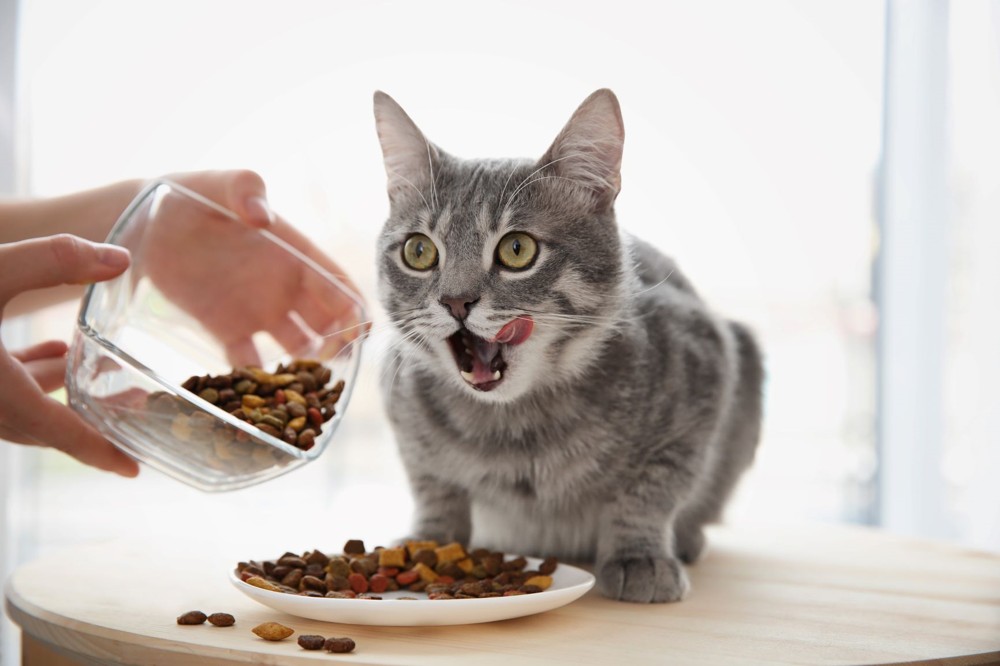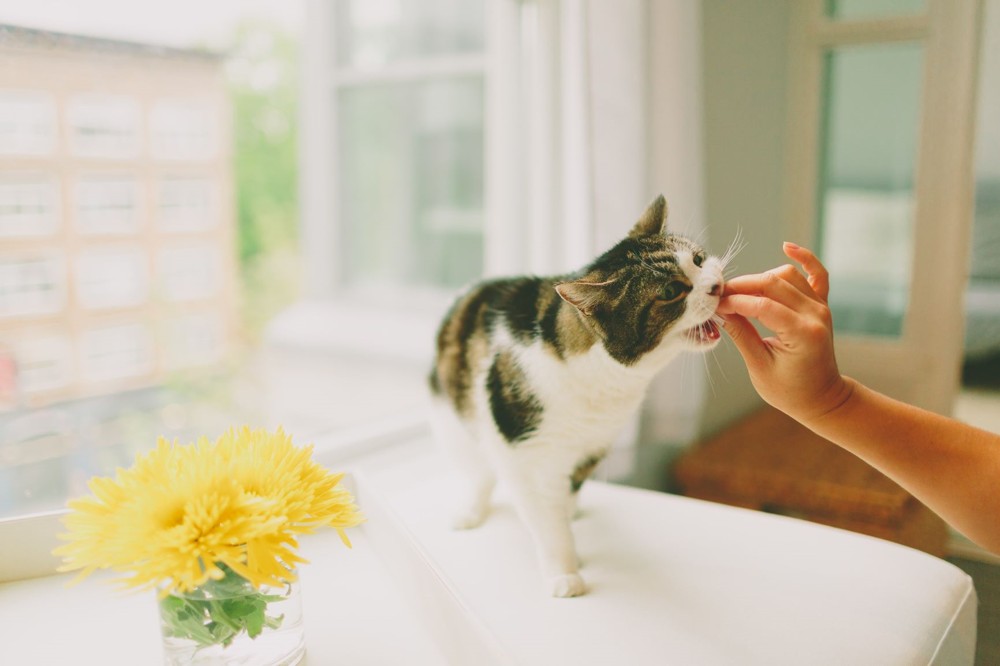Cat owners turn to preventive care to shield their precious feline friends from diseases. Ensuring your pet has the recommended daily allowance of the right vitamins will help their little bodies combat various illnesses.
Continue reading to know the right vitamins to feed your cats for them to maintain peak health.

What Vitamins do Cats Need?
Each vitamin plays a different role in your cat’s body. These compounds contribute in various ways, like enhancing vision and boosting immune systems.
Here are the vitamins that your cat needs every day:
Vitamin E
This fat-soluble nutrient is crucial to maintain your feline’s strong and healthy muscles. Your cat can also have robust circulatory and immune systems when fed with sufficient amounts of vitamin E per day.
Vitamin E is also an antioxidant, which means it can protect your pet’s body from damage that’s caused by free radicals. These substances are the natural byproducts of chemical processes, like metabolism in the body. These compounds oxidize and leave damages that can hasten your pet’s aging process. Thus, the more vitamin E your cat has in its diet, the better its chances of combating oxidation from free radicals.
You can feed your feline some semi moist (wet) cat food with vitamin E to ensure your pet gains the recommended daily amount of this nutrient. Consequently, you may feed your animal companion pet-friendly supplements containing this vitamin.
Vitamin D
Vitamin D helps regulate the absorption of other nutrients, like calcium and phosphorous, in your cat’s body. Albeit the sun is a good source of this nutrient, your cat’s body can’t convert plenty of vitamin D from the ultraviolet (UV) rays. Thus, your feline friend needs to get more of this compound from other sources.
The proper amount of vitamin D can help prevent severe pet health conditions, such as:
- Asthma
- Diabetes
- Cardiovascular disease
- Specific cancers
- Rickets
But, too much vitamin D can be toxic to your cat’s health. It’s best to follow the advice of a trustworthy veterinarian to check if your pet needs more of this nutrient or not.

Vitamin B1 (Thiamine)
Your cat’s brain and other high-energy organs need thiamine to help maintain proper organ function. Failure to give your cat enough thiamine in its diet may result in ailments, like neurological weakness and decreased light response in the pupils. Also, severe cases of Vitamin B1 deficiency may lead to heart problems for your pet.
You’ll notice if your cat needs more thiamine in its diet if it:
- Loses appetite
- Loses weight quickly
- Experiences signs of gastrointestinal upset
You can offer cat food that’s rich in vitamin B1 to help counter these symptoms. Also, thiamine is a water-soluble nutrient, which means your pet will easily excrete any excess amount of this compound.
Vitamin B2 (Riboflavin)
Another water-soluble vitamin that’s excellent for your cat’s daily diet is riboflavin. Vitamin B2 deficiency may lead to several health ailments, such as:
- Anorexia
- Bilateral cataracts
- Severe weight loss
- Fat accumulation in the liver
Severe cases of Vitamin B2 deficiency can also lead to the early death of your poor furry feline family member.
Feed your hungry cat with food rich in Vitamin B2, such as organ meats, vegetables, and specific dairy products. These options are rich in riboflavin, helping boost your cat’s immune system and reduce the risks of serious diseases.
Vitamin B12 (Cobalamin)
You can find cobalamin in several animal products, such as meat and offal. This vitamin plays a crucial role in the synthesis of nucleic acid in your pet. Vitamin B12 deficiency can also lead to issues concerning organs, like the liver or pancreas.
Supplementation of this vitamin is essential for your cat to maintain your pet’s well-being since a feline’s body may not store large quantities of this vitamin. Thus, cobalamin can quickly deteriorate in the body.
Failure to maintain sufficient amounts of this compound in your cat might result in pancreatic or hepatic impairment.
How to Feed Cats?
All cat owners should be observant while reading the labels in cat food. You can still focus on the ingredients, but don’t forget about keeping a watchful eye on the nutrients.
Also, follow a regular feeding routine for your pet feline. You can feed your cat twice a day – once at dawn and another time at dusk.
Moreover, take note of the amount of food you feed your cat. The food should coincide with your pet’s size and activity levels. However, a 200-calorie daily diet should suffice for most cats.
Conclusion
The right vitamins can help your cat remain at peak condition. Feed your kitty vitamins, like riboflavin, cobalamin, and vitamins D and E.
But, make sure to pay a visit to the veterinarian first before feeding your cat certain foods to avoid health complications.
